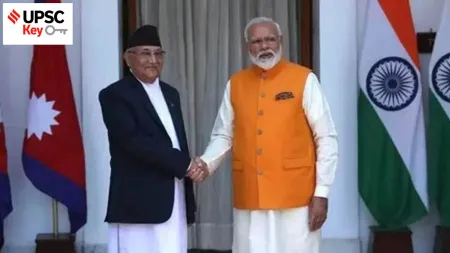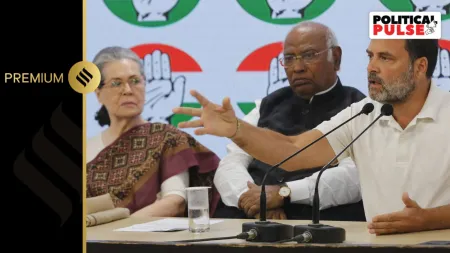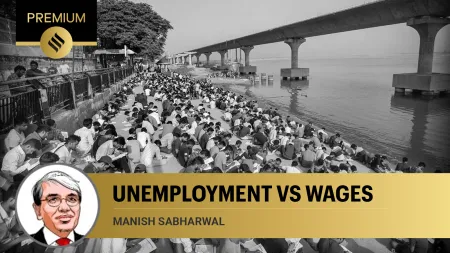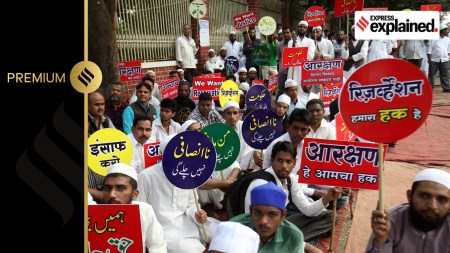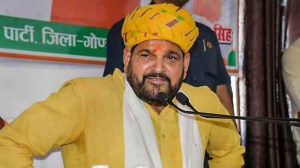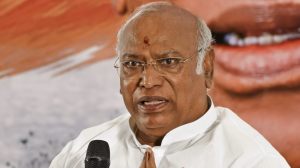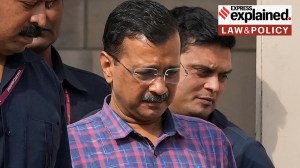- India
- International
Home at last: What regularising unauthorised colonies in Delhi means
For lakhs of homeowners, a chance to put their mind at ease; for political parties, an opportunity; and for the DDA, countless hours of work — what regularising unauthorised colonies means in the capital.
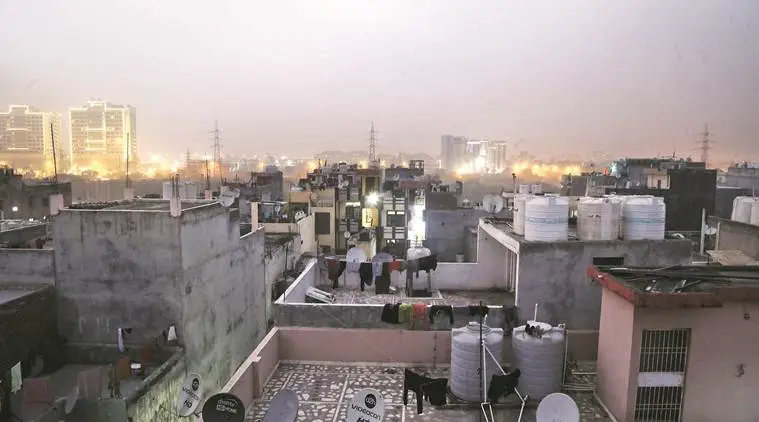 At New Ashok Nagar, an unauthorised colony. (Photo: Abhinav Saha)
At New Ashok Nagar, an unauthorised colony. (Photo: Abhinav Saha)
Two men sit in front of a computer screen inside a large room in South East Delhi’s Sarita Vihar. Their supervisor is ready to get to work, but the help desk, set up for residents of unauthorised colonies, is empty for the time being.
The office, set up by the Delhi Development Authority (DDA) on December 2, is among 25 across the city that have come up to assist the conferment of ownership rights to residents of 1,731 unauthorised colonies in Delhi, officials said.
This comes after the Centre paved the way for regularisation of these colonies, a move that could benefit 40-50 lakh people. A large part of Prime Minister Narendra Modi’s Sunday address at Ramlila Maidan also focused on how the Centre had done what many governments before it couldn’t.
In Sarita Vihar, Naseem Ahmed, in-charge of the help desk, said, “The area is tense due to the recent protest over the new citizenship law, so not many people have turned up. Despite this, 12 people have come since morning.” On an average, the centre sees 15 people per day.
Another help desk in South Delhi’s Shahpur Jat wore a similarly deserted look, while in East Delhi’s Shakarpur, a man was seen enquiring about his missing last name in property papers, using which he wants to get his house registered.
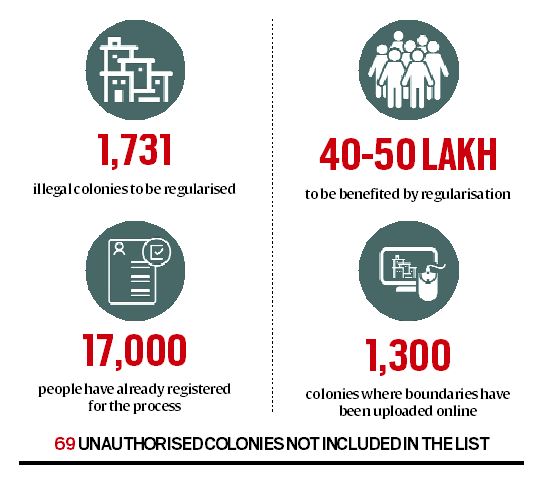

“The queries are mostly for help to access the portal set up by the DDA, so people can get themselves registered or know whether their colonies are in the list that will be regularised. Some also ask whether the general power of attorney is enough, and if registration will be done in the name of different people if building owners are different,” said Jagbir Singh from the Shahpur Jat office.
On December 4, a Bill that seeks to provide legal framework to grant ownership rights to people in unauthorised colonies in Delhi was passed by both Houses of Parliament, allowing ownership rights to be given on the basis of power of attorney, agreement of sale, will or possession letter.
DDA vice-chairperson Tarun Kapoor said the DDA, through its portal launched on December 17, has registered over 17,000 people. The next step for them is to upload ownership documents, after which a team of DDA officials will visit the spot for verification. Officials will then help applicants remove the deficiencies, if any.
He said the agency is ready to give conveyance deeds, following which people can get their homes registered with the Revenue Department.
The challenges
Senior DDA officials said the main challenge will begin when people start registering properties, because once they upload full details, these will go to processing centres. There are several properties where more than one person could stake claim of ownership.
Among the biggest challenges is of RWAs demanding that the DDA include in its boundary map areas that are outside the built-up area. “Vacant land inside built-up area is authorised, but not vacant land outside,” Kapoor said.
A senior official said there are chances of multiple claimants for a single land, since there are several plots where multiple parties have built properties. Some of these cases are in court.
There is no clarity so far on how thousands of ownership documents will be verified within a short period of time. There is also no information yet on how houses constructed violating structural safety will be dealt with.
According to DDA, the process has begun. It is now for the people to expedite the process of uploading documents.
“On paper, we will give people conveyance deeds. Thereafter, they can get the property registered. But the process of changing the geography of the area and adding facilities like parks, open areas and wider roads will take time,” Kapoor said.
Anuj Singh, a resident of New Ashok Nagar who works in an MNC, shares the same concern, “More than getting legal papers, we need the area to be redeveloped. Roads are so narrow that ambulances cannot enter. There are no parks or open spaces for children. How will the DDA give these facilities when there is no land left for such infrastructure?”
“In many colonies, there is barely two feet of space between two houses. Even riding a bike is difficult. How will parks or community centres be built? Whose land will be acquired? These questions need detailed deliberations. There are also issues over houses having been built by compromising structural safety,” he said.
DDA officials, at a later stage, intend to develop new layout plans, so the authority can construct wider roads by offering higher floor area ratio to people. Simply put: a person who parts with some land for the DDA will be able to build additional floors.
The politics
But regularisation goes beyond DDA and Delhi residents. For over three decades, giving ownership rights to residents of unauthorised colonies has been on the agenda of every political party in the city. That the BJP-led Centre has managed to take a step forward in this direction, with the colony mapping exercise underway, would be seen as a win by the party.
Just days before the Prime Minister’s Ramlila Maidan speech, Delhi BJP chief Manoj Tiwari had raised the same issue while addressing a public gathering on Surakhpur road in Najafgarh.
Nearby, holding the youngest of three children in her arms, Savita, who came from Karnal in Haryana and settled in Delhi a decade ago, said, “BJP distributed pamphlets, saying we will now get ownership. It will help me get bank loan and construct additional floors, which we have wanted to do for a long time.”
On the facilities in her colony, she said, “The AAP MLA has got roads built. Water quality is not very good, but I haven’t got an electricity bill in the last two months.”
Listening to the conversation, Mukim Sharma pitched in: “We will look at the services given by both parties. We will decide whom to vote for based on who has more to offer to the common people.”
For the AAP, which too has focused immensely on unauthorised colonies, the fight for the assembly would be tougher since the BJP is making the issue a poll plank. However, a senior party leader said they are confident: “Every person living in these colonies knows that it was us who got water and roads to their houses. That holds great value. We are sure people will support us.”
Buzzing Now
May 10: Latest News
- 01
- 02
- 03
- 04
- 05





